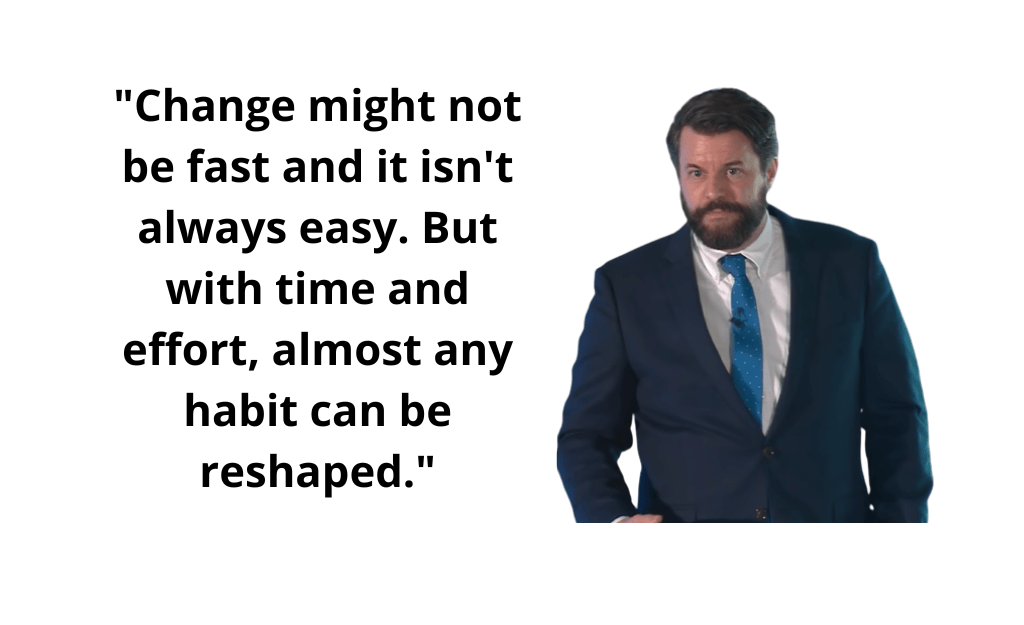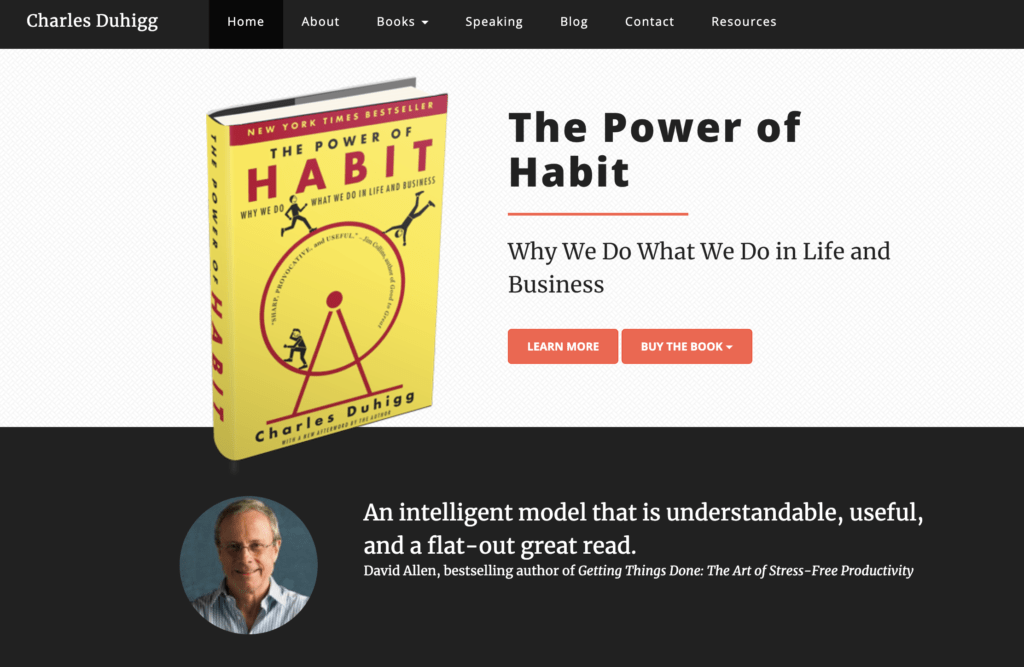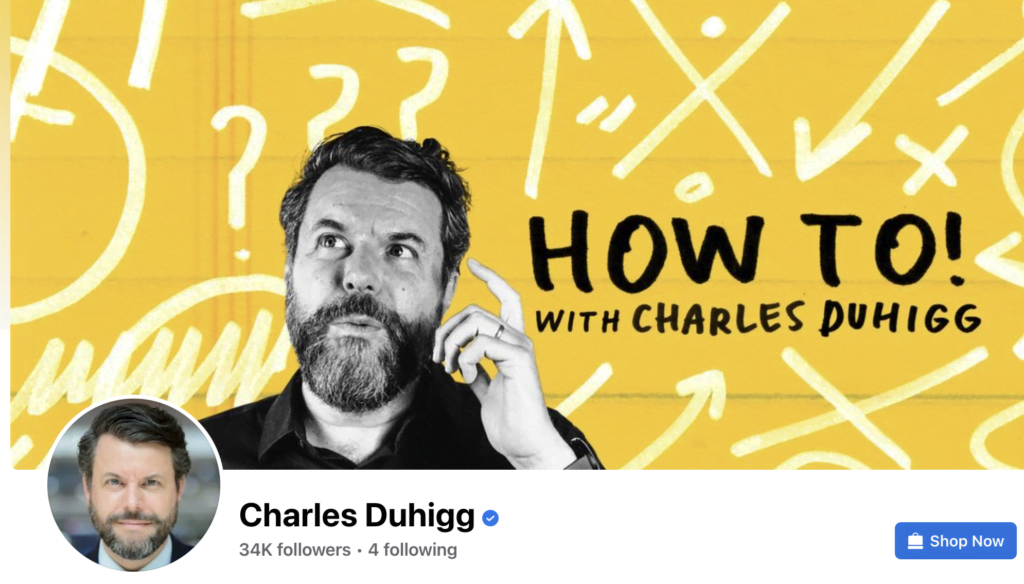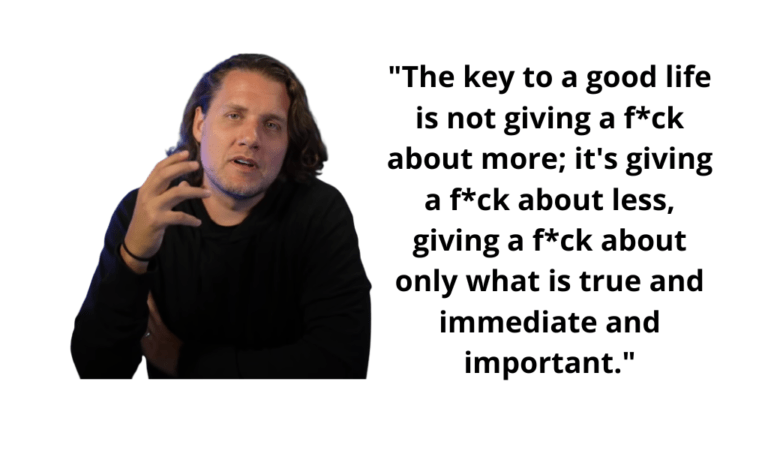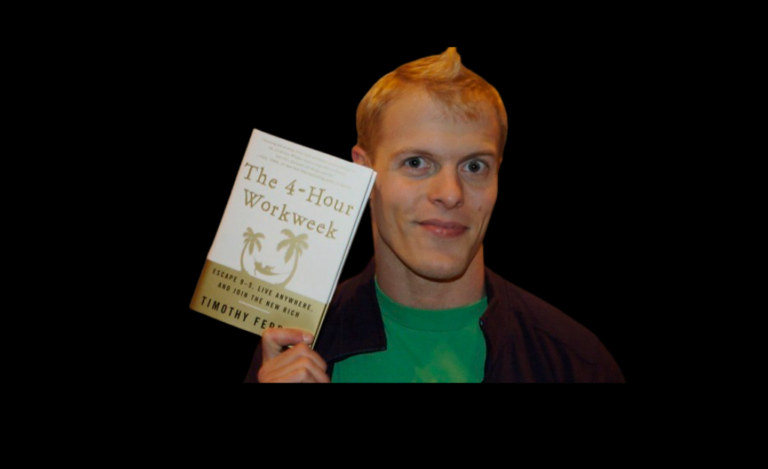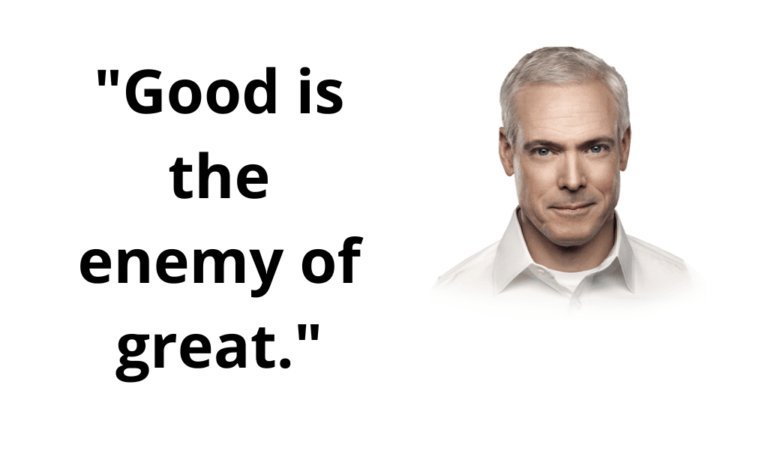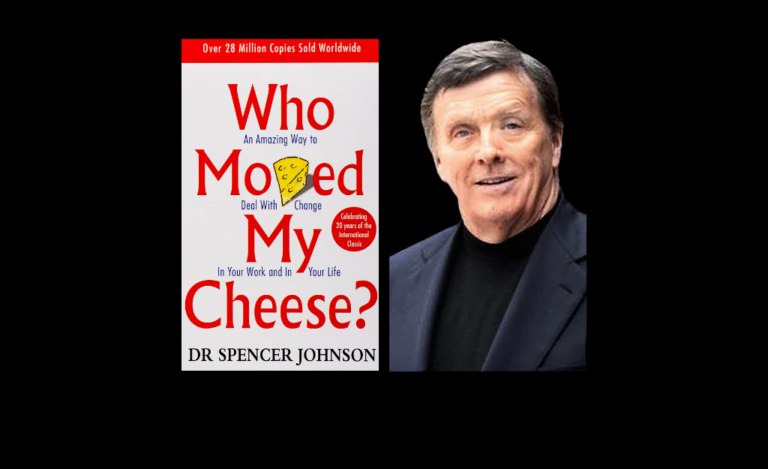Disclaimer: This post may contain affiliate links. For more information, please visit our Disclaimer Page.
The Inspiring Journey of a Revolutionary on Work Habits
Introduction to Charles Duhigg Biography
In quest of a thorough Charles Duhigg biography? Your pursuit terminates here in this blog post as we delve into the life and achievements of this Pulitzer Prize-winning author and journalist.
Renowned for his dexterity in productivity, formation of habits, and decision-making, Duhigg has left a lasting impact on self-help and personal growth. This article will delve into his formative years and the experiences that molded his perspectives on success, as well as scrutinize his seminal works and the acumen that has propelled him to the forefront of personal development.
So, whether you are a seasoned admirer of Duhigg’s oeuvre or a newcomer to the arena, prepare to be moved by the incredible tale of this impactful author and journalist.
Early Life and Education
Charles Duhigg was born on April 5, 1974, in New Mexico, USA, the fruit of his father’s second marriage, John J. Duhigg, a prominent trial lawyer in Albuquerque.
He has a sister named Katy Duhigg, a politician and attorney, and eight siblings from his father’s two marriages.

He attended Yale University, receiving his Bachelor’s degree in History. He later pursued his Master’s in Business Administration at Harvard Business School.
He graduated from Yale University and Harvard Business School in New York.
Career
Early career
After completing his education, Duhigg began his career as a reporter for the Los Angeles Times. In 2006, he joined The New York Times, where he worked for over a decade as a staff writer. He covered various topics, from business and technology to science and health.
Influences
In the summer of 2011, Charles Duhigg was introduced to the science of productivity when he asked a friend of a friend for a favor. At that time, he was in the final stages of writing a book about the neurology and psychology of habit formation and felt like he was falling further and further behind.
He was working as an investigative reporter at The New York Times, spending his days chasing stories and his nights rewriting book pages. His life felt like a never-ending treadmill of to-do lists, emails requiring immediate replies, rushed meetings, and subsequent apologies for being late. Additionally, his wife had just given birth to their second child and worked full-time.

Under the guise of seeking publishing advice, Duhigg sent a note to Atul Gawande, an author he admired and a friend of one of his colleagues at the New York Times. Gawande was a successful individual who held multiple prestigious positions, including being a staff writer at a renowned magazine, a renowned surgeon at one of the nation’s top hospitals, an associate professor at Harvard, and an adviser to the World Health Organization.
He also founded a nonprofit that sent surgical supplies to medically underserved parts of the world. Gawande was married with three children and had written three best-selling books. In 2006, he was awarded a MacArthur “genius” grant, to which he promptly donated a significant portion to charity.
Some individuals give off the impression of being productive, with impressive resumes highlighting their self-marketing abilities. However, others like Gawande seem to operate on a different level of productivity. His articles were intelligent and captivating, and he was known to be skilled in the operating room and devoted to his patients and family. He exuded a calm and reflective demeanor whenever he appeared in TV interviews. His achievements in medicine, writing and public health were significant and authentic.

Duhigg sent an email to Gawande asking for advice on how to be more productive. He wanted to know Gawande’s secret to be so productive, and if he learned it, could he change his own life?
The meaning of “productivity” can vary depending on the context. For instance, one person may feel accomplished after exercising for an hour before taking their children to school. Others may prefer to spend that time working in their office, responding to emails, and calling clients.
In a research scientist’s or artist’s eyes, productivity might involve failed experiments or discarded canvases, as each mistake brings them closer to a breakthrough. Meanwhile, an engineer may view productivity as improving the speed of an assembly line. For some, a productive weekend could entail a leisurely stroll through a park with their children, while a productive workday may mean rushing to drop them off at daycare and arriving at the office as early as possible.
According to this definition, productivity is finding the best ways to use our energy, intellect, and time to achieve our goals with the least wasted effort and stress. It involves getting things done without sacrificing the things that matter to us.
Breakthrough success
Productivity Lessons from Atul Gawande: Success without Sacrifice
After sending Atul Gawande an email asking for advice on productivity, he responded a few days later, regretfully declining due to his many commitments. This showed that even someone as productive as Gawande has limits.
Later that week, the author mentioned the email exchange to a mutual friend and clarified that he wasn’t offended by Gawande’s response. He admired Gawande’s focus and imagined that his days were consumed with healing patients, teaching medical students, writing articles, and advising the world’s largest health organization.
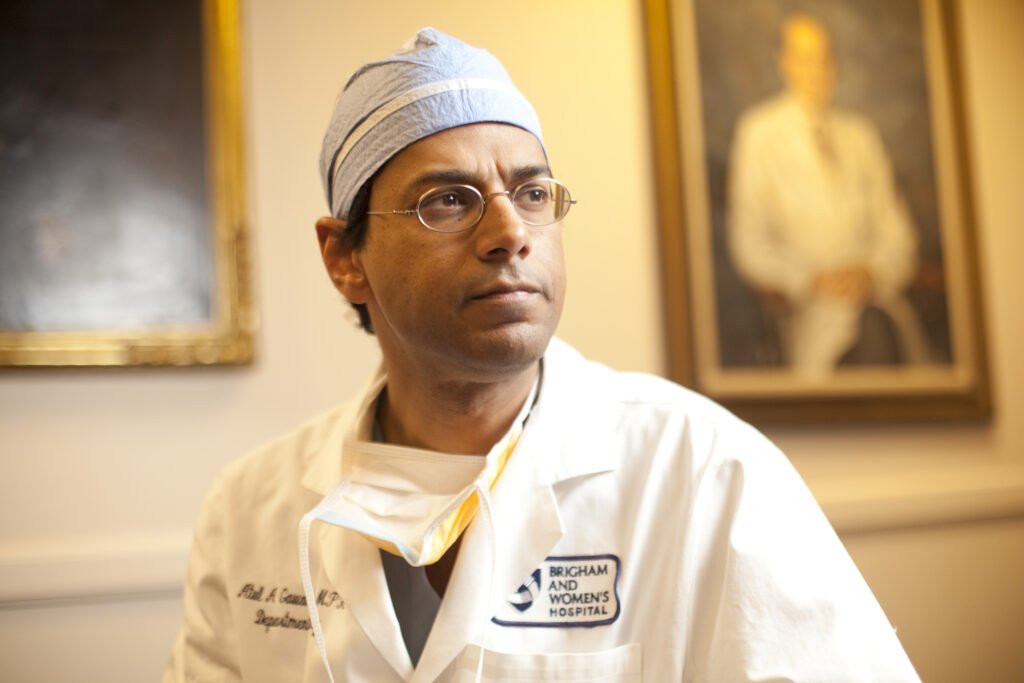
However, the friend corrected him and said that Gawande was particularly busy that week because he had bought tickets to a rock concert with his kids and was heading on a mini-vacation with his wife. Surprised by this, the author learned that Gawande had suggested to their mutual friend that he should email him again later that month when he would have more time to chat.
At that moment, Duhigg realized two things:
First, he was doing something wrong because he hadn’t taken a day off in nine months.
Second, and more importantly, some people knew how to be more productive. He just had to convince them to share their secrets with him.
One of Duhigg’s work’s key breakthroughs is his habit loop concept. The habit loop is a three-part process that explains how habits are formed and maintained. It consists of a cue, a routine, and a reward. The cue triggers the habit, the routine is the behavior that follows, and the reward reinforces the habit. By understanding the habit loop, we can identify the cues that trigger our habits and change the routine to achieve different outcomes.
Another breakthrough in Duhigg’s work is his emphasis on keystone habits. Keystone habits have a ripple effect on other areas of our lives. For example, exercise is a keystone habit because it can improve physical and mental health and productivity. By focusing on keystone habits, we can make small changes that greatly impact our lives.
Awards and Recognition
- 2007 George Polk Award
- 2007 Heywood Broun Award
- 2008 Hillman Prize
- 2008 Gerald Loeb Award Honorable Mention for Beat Writing for “Golden Opportunities”
- 2009 Scripps Howard National Journalism Award
- 2009 Investigative Reporters and Editors Medal
- 2009 Gerald Loeb Award for Large Newspapers for “The Reckoning”
- 2010 United States National Academies Communication Award
- 2010 Society of Environmental Journalists Investigative Reporting Award awards from the Society of American Business Editors and Writers, the Deadline Awards, and the John B. Oakes Awards
- 2013, with other The New York Times reporters, Pulitzer Prize for Explanatory Reporting for a series of 10 articles on the business practices of Apple and other technology companies.
Published works
Duhigg wrote two bestselling books: “The Power of Habit: Why We Do What We Do in Life and Business” in 2012, which explores the science of habit formation, and “Smarter Faster Better: The Secrets of Being Productive in Life and Business” in 2016, which explores the science of productivity. Both books were well-received and critically acclaimed.
Personal Life
Charles Duhigg is married and has two children. He currently resides in Brooklyn, New York.

Charles Duhigg Networks
Website

Books
- 2012 – The Power of Habit: Why We Do What We Do in Life and Business
- 2016 – Smarter Faster Better: The Secrets of Being Productive in Life and Business
Conclusion
Charles Duhigg’s biography recounts the captivating narrative of a Pulitzer Prize-winning author and journalist whose contributions to habit formation, productivity, and decision-making have been monumental. From his nascent days as a correspondent to his pioneering research on habits and productivity, Duhigg’s life and oeuvre have served as a wellspring of inspiration for numerous individuals seeking to take control of their lives and achieve their goals.
Duhigg’s tomes, “The Power of Habit” and “Smarter Faster Better,” are indispensable vade mecums for those seeking personal and professional development. These books furnish practical insights and methodologies for discerning our habits, modifying our conduct, and becoming more productive and prosperous. Duhigg’s captivating writing style and knack for rendering intricate concepts accessible to a wide-ranging readership render his books informative and enjoyable.
If you yearn to seize control of your life and attain your objectives, then Charles Duhigg’s books are obligatory readings. Whether you aspire to break deleterious habits, augment your productivity, or bring positive alterations to your life, Duhigg’s output proffers the pragmatic advice and instruments you need to prevail.
So why not take the initial stride towards a superior life today and acquire a copy of “The Power of Habit” or “Smarter Faster Better”? You won’t rue your decision. With Duhigg’s tutelage and erudition, you can unleash your full potential and accomplish success in all domains of your life.
F.A.Q. about Charles Duhigg
Who is Charles Duhigg?
Charles Duhigg is a Pulitzer Prize-winning journalist and author known for his books on productivity, habit formation, and the science of success. He was born in New Mexico in 1974 and attended Yale University, where he studied history and received his undergraduate degree. After completing his studies, he worked as a reporter for The Los Angeles Times and The New York Times. In addition to his journalism work, he has authored several bestselling books, including “The Power of Habit” and “Smarter Faster Better.”
What is “The Power of Habit”?
“The Power of Habit” is a book by Charles Duhigg that explores the science behind habit formation and how habits can be changed. In the book, Duhigg draws on psychology, neuroscience, and sociology research to explain how habits are formed and can be transformed. He also provides real-world examples of individuals and organizations that have successfully changed their habits to achieve their goals.
What is “Smarter Faster Better”?
“Smarter Faster Better” is another book by Charles Duhigg that examines the science of productivity and the factors contributing to success. In the book, Duhigg uses real-world examples and interviews with successful individuals to explore goal-setting, motivation, and decision-making. He also provides practical advice on how individuals and organizations can improve their productivity and achieve their goals.
What is “The New York Times” series “The Economy”?
“The iEconomy” is a series of articles that Charles Duhigg co-authored for The New York Times. The series examines the impact of technology on the global economy and explores the challenges and opportunities that arise from technological change. Some topics covered in the series include the rise of outsourcing, the effects of automation on employment, and the emergence of new industries, such as the app economy.
Charles Duhigg Quotes
“Change might not be fast and it isn’t always easy. But with time and effort, almost any habit can be reshaped.”
“Motivation is more like a skill, akin to reading or writing, that can be learned and honed.”
“The most successful people I know have figured out how to live with criticism, to lean on the people who believe in them, and to push onward with their goals.”
“Champions don’t do extraordinary things. They do ordinary things, but they do them without thinking, too fast for the other team to react. They follow the habits they’ve learned.”
“To change a habit, you must keep the old cue, and deliver the old reward, but insert a new routine.”
“A craving is the sense that something is missing. It is the desire to change your internal state.”
“When a habit emerges, the brain stops fully participating in decision making.”
“Small wins are a steady application of a small advantage.”
“The power of a keystone habit draws from its ability to change your self-image.”
“You have to be able to stick with something long enough to master it.”

